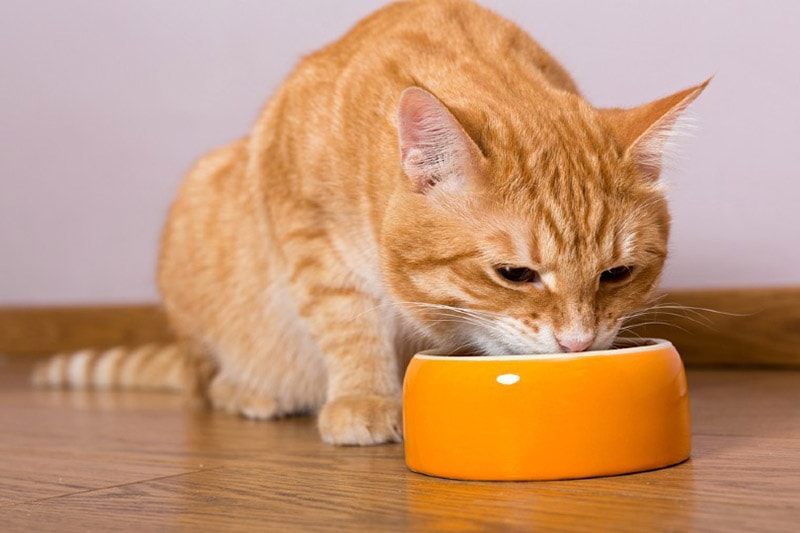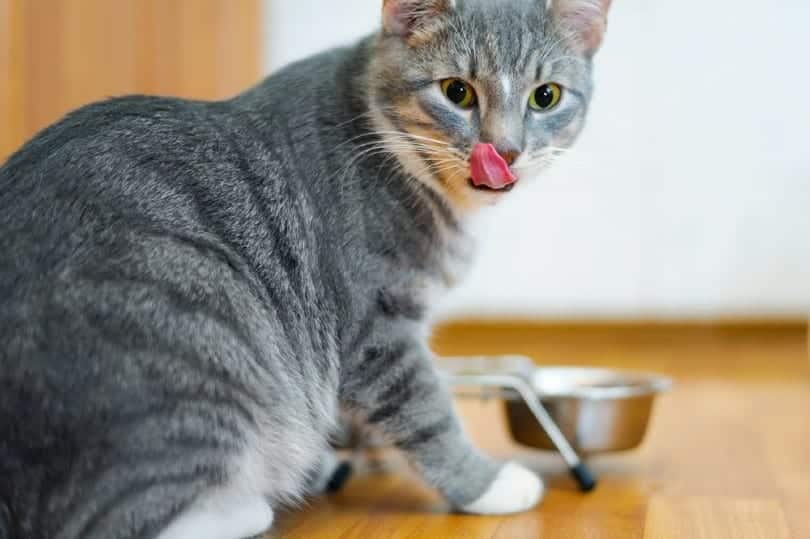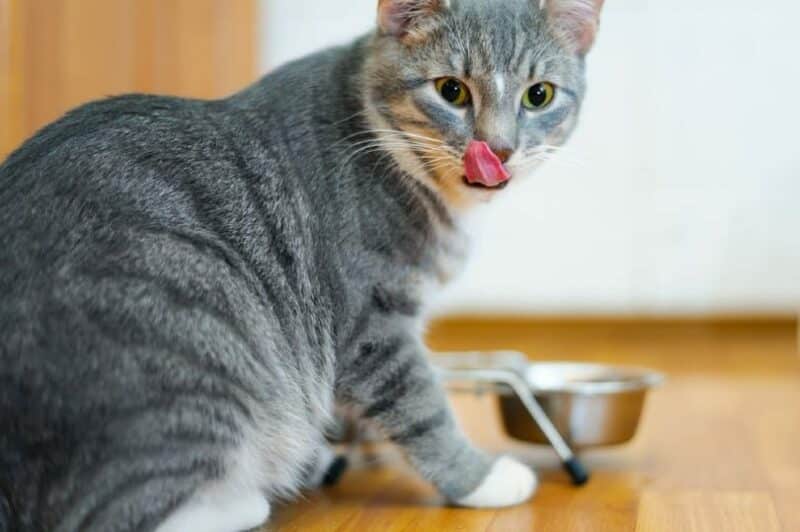While it’s important for humans to thoroughly chew our food before swallowing, for many other mammals—cats included—this is not usually the case. Humans eat a wide variety of different foods, from tough plants, seeds, and nuts that need to be crunched by our molars to soft cereals that don’t need much chewing at all. This is the reason that we have such varied sets of teeth, including sharp incisors for tearing and cutting and molars for crunching and chewing.
The same can be said of dogs, which are natural hunters and scavengers and will eat most foods that they come across. Cats, on the other hand, are obligate carnivores, and they have completely different dietary habits. Still, if you notice that your cat is not chewing his food, is there a reason to worry? Do cats chew their food? In general, no, cats do not typically chew their food.
In this article, we look at whether it’s natural for cats to chew their food and whether there is cause for concern if they are not.
Do Cats Chew Their Food?
Cats do not typically chew their food. While this is most noticeable with soft tinned foods and meats, it’s not unusual for cats to swallow chunks of kibble whole, too! Cats can consume an entire bowl of hard kibble, and only crunch on every few pieces, and this can understandably cause concern for their owners.
In reality, cats hardly ever chew their food, and this is perfectly normal behavior. Cats are obligate carnivores, meaning that in the wild, at least, they typically eat nothing but meat. Cats need a large amount of animal protein to not only survive but also thrive. The two essential amino acids that cats cannot synthesize and, therefore, require to ingest for their survival are taurine and arginine. Taurine can only be found in large amounts in meat. A cat on a vegetarian diet will not last long.

Teeth Built to Tear
One look at a cat’s teeth and their carnivorous nature is plain to see; their jaws are packed with sharp teeth that are built to tear into and shred meat and are all but absent of molars. While cats have some molars, they are still sharp and built for shredding and are quite different from humans’ chewing and grinding molars.
A cat’s teeth are simply not designed for much chewing, and instead, they rip off small pieces of meat and swallow them whole. Try to imagine chewing food with your front teeth, and you can soon understand why cats do little chewing, if any at all.
What About Kibble?
Many cats do not even chew cat food, which is why it’s vital to purchase food that is made especially for cats and is not too large. The same goes for kittens and senior cats; they should only eat kibble that is specially designed for them to eat, or they can potentially choke.
Some cats that are more on the patient side will break their kibble up a little before swallowing, but most of it goes down the hatch whole. Even with meat, cats will tear smaller, bite-sized chunks off and swallow them whole with little chewing involved.
Is There a Reason to Worry?
Because not chewing food in cats is perfectly natural, there is usually no reason to worry about the behavior. That said, in some cases, your cat may eat too quickly, and this can cause them discomfort when combined with the lack of chewing. Eating too much too fast may cause excessive weight gain, bloat, gastric upset, and even vomiting in your feline, but there are ways to slow them down.
The simplest solution is a slow feed bowl. These bowls are specially designed to allow your cat to only get a certain amount of food in one bite. This can help them lose weight, as they’ll feel full before wolfing all their food down, and it can greatly help in preventing gastrointestinal discomfort.
Alternatively, you could invest in food and water dishes that are both functional for your cat and beautiful for your home. Designed with your cat's well-being in mind, the Hepper NomNom Cat Bowl takes a modern spin on traditional cat dishes and is aimed at offering the utmost comfort and support to cats of all ages, sizes, and breeds. It's spillproof, dishwasher safe, and comprised of cat-safe materials. Learn more about the NomNom Cat Bowl here. At Catster, we’ve admired Hepper for many years and decided to take a controlling ownership interest so that we could benefit from the outstanding designs of this cool cat company!
Final Thoughts
While it may seem counterintuitive to us molar-equipped humans, not chewing food is perfectly normal for cats. Even dry kibble is no match for the sharp teeth and strong jaws of most felines—just make sure the pieces are not too big. Because cats are obligate carnivores, they have vastly different dietary requirements than we do, and they have the teeth to prove it! If you notice your cat not chewing their food, there is no reason to worry!
Related Read:
- 9 Human Foods That Cats Can Safely Eat: Vet-Reviewed Dishes
- Is Kibble Bad for My Cat? Vet Reviewed Facts & FAQ
Featured Image Credit: mik ulyannikov, Shutterstock














